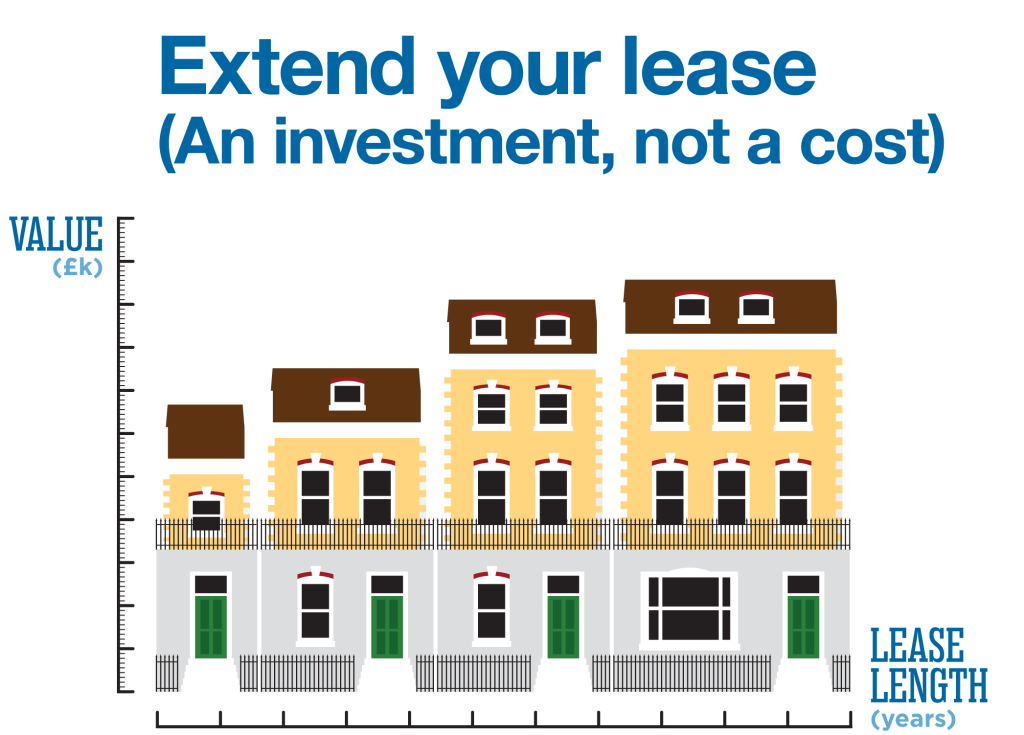Lease extensions can be intimidating, particularly for leasehold properties in London. In such instances, Lease Extension Surveyors play provide expertise on leasehold property to help you through the process.
The extension of the lease is when a leaseholder is able to increase its term. It is a process authorized by the Leasehold Reform, Housing and Urban Development Act 1993, which provides for an extension of the lease of 90 years on an apartment and 50 years on a house. This extension of the lease is particularly important when the lease reaches the 80 year point, as the cost of extending the lease will then increase dramatically.
To find out how much money the leaseholder should pay the freeholder to secure a lease extension, the lease extension surveyor is in charge of determining an accurate leasehold valuation. By using approved RICS (Royal Institution of Chartered Surveyors) registered techniques, the leasehold property is carefully assessed by the surveyor to establish the leasehold extension premium. This will include using the appropriate valuation tools to determine the length of ownership, the rent and the worth of the house.

Lease Extension Valuation involves the market value of the London property and includes assumptions based on statute and court of tribunal decisions. In short, the reports consist of a premium to be paid to the freeholder and the best and worst case for both sides. Lease extension premiums take into account the following:
Without any involvement of lenders or banks, the valuers are registered with RICS, which guarantees unbaised reports for the benefit of freeholders and leaseholders.
Leaseholders use Lease Extension Valuation reports to do the following:
Freeholders use Lease Extension Valuation report to do the following:
When a lease has 100 or more years remaining, leaseholders generally do not gain anything financially by extending it; however, extending a lease with fewer than 80 years remaining can cost tens of thousands, but also be highly profitable. The freeholder is legally obligated to grant practically all leaseholders who’ve owned the flat at least 2 years a 90-year extension. If you’re nearing the mark of 83 years remaining, you may want to seriously think about extending your lease or calling us for advice.
When extending a leasehold in the UK, the process can come across as complicated. Breaking the process down into clear, concise steps however, makes it much more easy to swallow:
Keep in mind, this process can take a lot of time and has serious legal and financial consequences. Consulting a professional before you begin is a good idea so that you have a clear understanding of what you will need to do and what you can expect.
The valuation produced by a surveyor is critical to the leaseholder’s negotiations to extend the lease with the freeholder. Those negotiations are often complicated because they involve a number of financial and legal issues. For instance, serving a Section 42 Notice to the landlord is necessary to extend a lease. That itself requires a sound, working knowledge of the lease extension process. The surveyor and the leaseholder’s solicitor use the lease extension valuation to offer the freeholder a deal, based on what the leaseholder wants to pay. Other factors, like the lease length—short or long—help the surveyor and solicitor negotiate a good lease extension outcome for the leaseholder.
Nevertheless, the negotiations are not always this straightforward as disputes can arise over the premium on the lease extension. Where this is the case a lease extension surveyor can represent you at a Tribunal or County Court, protecting your rights as a leaseholder whilst arguing a fair and reasonable lease extension premium.
In simple terms, a lease extension surveyor in London is a surveyor who is regulated by the Royal Institution of Chartered Surveyors and specializes in extending the lease on leasehold properties, be it a residential flat or commercial building. Their role entails preparing the lease extension pack, reviewing the legal agreement, liaising with leasehold funders if re-mortgaging the property, coordinating the sale or accomplishing the lease extension process.
Valuation is a very important part of the lease extension process as it will define the cost of the lease extension. A lease extension surveyor in London will advise the client on the accurate value one should pay for a lease extension and consider the value of the future maintenance.
A lease extension surveyor in London is a surveyor who is a member of the Royal Institution of Chartered Surveyors who advises on extending the lease on leasehold properties. They provide leasehold valuations, negotiate with freeholders, serve the necessary legal notices and provide representation at tribunals. A lease extension surveyor in London is crucial to ensuring leaseholders can confidently navigate the lease extension process. With their help, extending a lease does not have to be a difficult or daunting process but instead a simple step in securing the value and longevity of one’s property.
Section 42 Notice is the formal document requesting the extension of a lease. It is part of the Leasehold Reform, Housing, and Urban Development Act 1993 which allows leaseholders to add 90 years to their lease and reduce the ground rent to £0.
In order to serve the Section 42 Notice, certain conditions must be met by the leaseholder.
The notice has to consist of details such as full name and address of the leaseholder, description of the property, the premium proposed for the lease extension, and the terms on which the lease extension ought to take place.
After the freeholder has been served the notice, they have a period of time prescribed by statute within which they must respond with a counter-notice. The counter-notice is known as a Section 45 Notice. This notice will either agree to the terms included with the lease extension notice or propose different terms.
Serving a Section 42 Notice is a legal process, so it is strongly recommended that leaseholders seek independent legal advice when doing so. There are also costs involved, including professional fees and a deposit payable to the landlord.
Lease Extension Surveyors are pivotal when it comes to extending a leasehold property throughout London. Their duties are focused on interpretation of the current lease, working out the cost of the extension and providing a market valuation quote. The use of a lease extension calculator is important for this type of calculation. When the lease gets below 80 years, an application to extend should be made. This is because, when the unexpired term of the lease falls below 80 years, the price to extend starts to rise substantially.
When clients pursue a statutory lease extension, or want to extend their lease by 90 years, they require a solicitor and a surveyor. The solicitor serves notice on the landlord to grant a lease extension and, if it is not agreed, a solicitor may have to apply to the county court for a lease extension.
Highly experienced and offering a professional lease extension service, our panel of London chartered surveyors aim to achieve your lease extension at reasonable costs. Phone today for a free initial consultation.





